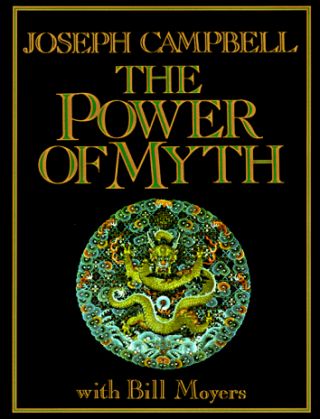Psychoanalysis
The Ordinary Hero's Journey: Part I
Elizabeth Gilbert, Psychoanalysis, and the Hero's Journey
Posted April 2, 2015

Most likely you have heard of the work of Joseph Campbell, the American writer and teacher who made his mark on the world with his captivating analysis of the hero’s journey that is found in many myths throughout human history. From Homer’s Odyssey to George Lucas’ Star Wars, Campbell traces the journey that a man must go through in order to discover his truest self and bring his gifts to the world. If you are like me and would like to see how this journey is played out in a woman’s life, you need only turn to Dorothy in the Wizard of Oz or Elizabeth Gilbert in Eat, Pray, Love to see that the heroine can have a similar journey of self-discovery as well.
Whether we know it or not, the hero’s journey is in the air this time of year, as we enter into the religious seasons of Passover and Easter—holidays that honor Moses and his journey from slavery to the promised land; or Jesus and his journey from Bethlehem’s stable to the empty tomb. Their journeys follow the formula identified by Campbell as a “monomyth,” an unfolding story made up of key elements.
In the monomyth, the hero begins as an ordinary person in the ordinary world, and receives a call to enter a strange, unknown world. If he accepts the call, he must face tasks and trials, sometimes alone and sometimes with assistance from other humans or even from supernatural figures. These trials are both external and internal, and he is changed for the better in the process. In the end, the hero receives a gift and then must decide what to do with it. True heroes return to share their gifts with others, often facing life-threatening challenges on the way back home.

Now you may be wondering why a psychoanalyst is writing about the hero’s journey—isn’t this the stuff of mythology, religion, literature, and History channel documentaries? Well, the reason is simple. I have been thinking lately that the journey that a patient takes in psychoanalysis has many of the same elements as those identified in the hero’s journey—an ordinary person takes a journey into the unknown of his unconscious inner world, faces his demons with the aid of another, and emerges on the other side with a more integrated sense of himself and the desire to share his gifts with others.
My thinking was stimulated by an episode of Oprah Winfrey’s Supersoul Sunday in which she interviews Elizabeth Gilbert, one of the featured speakers on “The Life You Want Tour.” In the interview, Gilbert talks about Joseph Campbell and the hero’s journey, particularly as it relates to her personal journey of self-discovery—not only documented in her memoir, Eat, Pray, Love but also in her life, writing, and teaching that followed. The lessons that she learned about herself and the personal transformation that she described resonated so profoundly with the work of psychoanalysis, particularly in the model of child psychoanalyst Melanie Klein.

While a transcript of the interview doesn’t do it justice, I want to give you a flavor of Gilbert’s wisdom. Click here to view the entire episode, especially beginning at minute 30 when Oprah asks Gilbert to describe her personal hero’s battle. Gilbert says,
"The real battle for me was my own self-abuse... I was never good enough. I couldn’t let go of my failures, I couldn’t let go of my shame… I couldn’t let go of any mistake I had ever made; I had an inventory that was so long…
"That was the battle, in the four months in that meditation cave, alone with no distraction, no friends, nothing except me and It (she says, pointing to her head). And the It was the anger, the sadness, the sorrow, the shame, the pain. And we were in there. My head, like most heads, is a neighborhood you don’t want to walk in at night…
"And I just remember, this was my victory and my battle. All my 'demons,' all my 'monsters' that I’d been carrying around forever… The light came through and I realized, 'Oh! They’re not demons, they’re not monsters, they’re not dragons. I’ve been making them more grandiose than they are. They’re just the orphaned parts of me. They’re just the fearful-est, most young, terrified parts of me. They’re scared to death. And they are throwing temper tantrums because of their fear. And now I have to tell them it’s going to be okay. And they will all go to sleep. I am the mother of all of these parts of me.'
"And I remember in my mind just ascending above them all and saying, 'I love you, Fear, and now you go to sleep. I love you, Anger, you’re part of me. Go to sleep; it’s fine, I’m in charge now. I love you, Shame, even you. Come into my heart, go to sleep. You’re safe, I love you; I’m not leaving you. I can’t, you’re part of me, you’re part of the family; you never can be away from me. I love you, Failure. Come into my heart, rest. You’re so tired, you’re so scared. You’re just children; you don’t know how the world works. I love all of you; I have space for all of you. And together, we’re just going to go forward now. But mommy’s driving now. And mommy is the part of me that can embrace everything I am in peace.”
To be honest, the interview gave me goosebumps. I heard echoes of my own words in Wisdom from the Couch, as well as the words of so many wise ones who have influenced me—from Melanie Klein to Carl Jung to Jesus to Siddhartha to Henri Nouwen to Rainer Maria Rilke, and the list goes on. The hero must integrate and make peace with all the aspects of his own psychological life. The hero’s battle is within.
While the details of Gilbert’s journey were entirely different than those of a person engaged in psychoanalysis, the process and effect were so similar. She had to contend with the many voices in her head, driving her to perfectionism in a harsh, ruthless, graceless way and tying her to a life that was not her true calling. As in the journey of psychoanalysis, she engaged in a transformational process to re-order her internal world in a more life-giving way. I find it inspiring and touching to see someone answer the call and embark on their own hero’s journey. While I am partial to the way of psychoanalysis, Gilbert shows us that there are other fine methods and paths that one might take. The point is to answer the call and get going.
Copyright 2015 Jennifer Kunst, PhD
Like it! Share it!
Follow me on twitter @ CouchWisdom
To learn more about Jennifer's journey, check out her new book, Wisdom from the Couch: Knowing and Growing Yourself from the Inside Out


